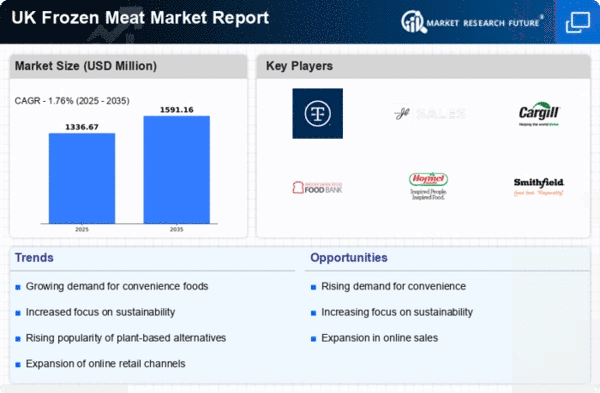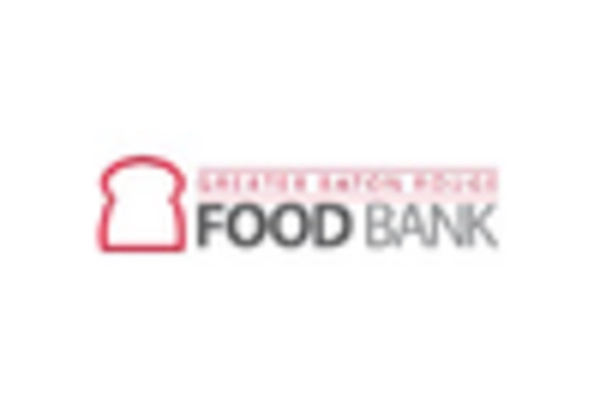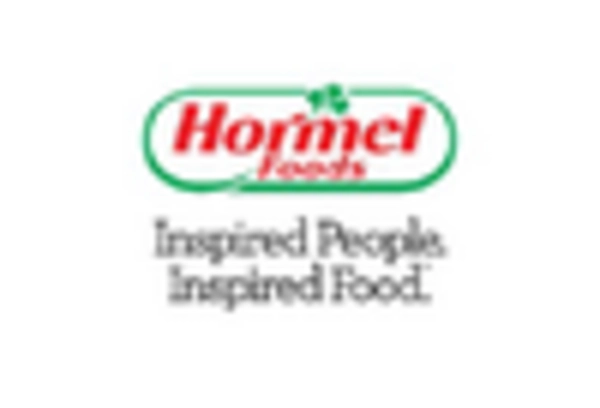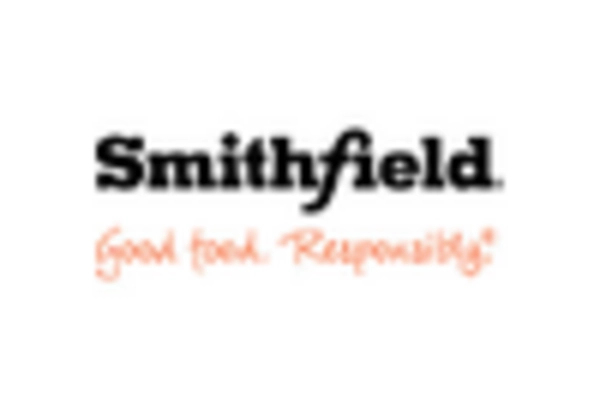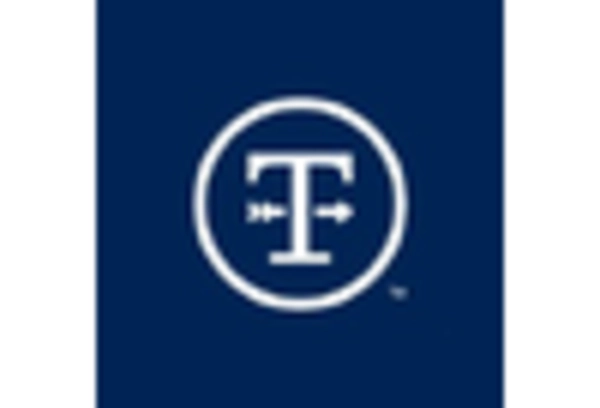Evolving Consumer Preferences
Consumer preferences in the UK are shifting towards high-quality, ethically sourced products, which significantly impacts the frozen meat market. As consumers become more discerning, they are increasingly seeking transparency regarding the origins of their food. This trend has prompted many frozen meat suppliers to adopt more sustainable practices and provide detailed information about their sourcing methods. The frozen meat market is responding by offering products that meet these evolving preferences, such as organic and free-range options. This shift not only enhances consumer trust but also positions brands favorably in a competitive landscape. The market may see a rise in premium frozen meat products, reflecting the willingness of consumers to pay a higher price for quality and ethical considerations.
Rising Demand for Protein Sources
The increasing awareness of protein's role in a balanced diet appears to drive the frozen meat market. As consumers seek convenient and nutritious options, the demand for frozen meat products has surged. In the UK, the protein consumption rate has been on the rise, with meat accounting for a substantial portion of dietary intake. The frozen meat market is likely to benefit from this trend, as it offers a variety of protein-rich products that are easy to store and prepare. Furthermore, the convenience of frozen meat aligns with the busy lifestyles of modern consumers, making it an attractive option for families and individuals alike. This growing demand for protein sources may lead to an expansion in product offerings within the frozen meat market, catering to diverse consumer preferences.
Growth of E-commerce and Online Retail
The rise of e-commerce and online retail platforms is reshaping the frozen meat market landscape. With the increasing preference for online shopping, consumers in the UK are turning to digital platforms for their grocery needs, including frozen meat products. This shift has prompted retailers to enhance their online presence and offer a wider range of frozen meat options. The frozen meat market is likely to benefit from this trend, as online shopping provides convenience and accessibility for consumers. Furthermore, the ability to compare prices and read reviews online may influence purchasing decisions, leading to increased sales. As e-commerce continues to grow, the frozen meat market may see a significant transformation in distribution channels and consumer engagement.
Technological Advancements in Preservation
Technological innovations in food preservation are transforming the frozen meat market. Advances in freezing techniques, such as flash freezing and cryogenic freezing, enhance the quality and shelf life of frozen meat products. These methods help retain the nutritional value and taste of meat, appealing to health-conscious consumers. In the UK, the adoption of these technologies is likely to bolster the frozen meat market, as retailers and manufacturers strive to meet consumer expectations for freshness and quality. Additionally, improved packaging solutions that extend shelf life and reduce waste may further stimulate market growth. As technology continues to evolve, the frozen meat market could witness a significant shift towards higher quality offerings, attracting a broader consumer base.
Impact of Health Trends on Meat Consumption
Health trends are playing a crucial role in shaping the frozen meat market. As consumers become more health-conscious, there is a noticeable shift towards leaner meat options and products with reduced additives. The frozen meat market is adapting to these changes by offering healthier alternatives, such as low-fat and organic frozen meats. In the UK, the demand for such products is on the rise, as consumers seek to align their dietary choices with their health goals. This trend may lead to an increase in product innovation, with manufacturers developing new frozen meat items that cater to health-conscious consumers. The impact of health trends on meat consumption could potentially reshape the frozen meat market, driving growth in specific product categories.


